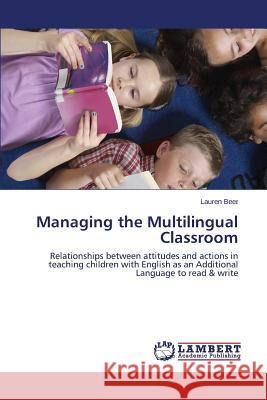Managing the Multilingual Classroom » książka
Managing the Multilingual Classroom
ISBN-13: 9783659473302 / Angielski / Miękka / 2013 / 136 str.
Whilst current UK education planning acknowledges the need to accommodate an increasingly multicultural and multilingual society, there is no guidance in the National Curriculum on how to manage this, leaving schools to make their own provisions for managing a multilingual classroom. This study looks at the attitudes towards English as an Additional Language (EAL) within two schools. It considers the attitudes of the press, school inspectors, and teaching staff towards what the best methods to manage the teaching of literacy skills within a multilingual classroom are. It discusses the belief that EAL is an issue requiring Special Educational Needs teaching versus an approach which seeks to integrate EAL into language teaching, encouraging children to thrive as multi-linguists. It explores the idea that the current phonics system works well as a strategy which enables children to learn to decode, but asks, is it enough? Does support of a L1 really help with the development of a L2, rather than hinder it as may be the popular belief imaged in the press? Should more linguists be encouraged to get involved with policy making and to influence decisions when they are made?











